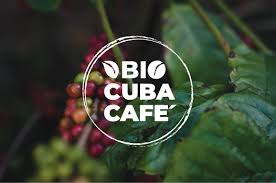BioCubaCafé refers to a strategic Cuban initiative that leverages the nation’s advanced biotechnology sector to revolutionize its coffee industry. Rather than a physical café, it represents a dedicated program focusing on the scientific enhancement of coffee cultivation. This involves sophisticated techniques such as plant tissue culture, molecular biology, and genetic improvement.
The primary objectives are to improve the yield, quality, and disease resistance of Cuban coffee plants. By developing more robust and productive varieties, BioCubaCafé aims to boost national coffee output, ensure sustainability, and enhance the distinct characteristics that make Cuban coffee prized, standing as a prime example of Cuba’s broader commitment to applying scientific innovation to key economic sectors.
An initiative of this nature would comprehensively tackle various critical aspects of coffee cultivation and processing, aiming for holistic improvement.
Genetic Improvement: Developing superior coffee plant varieties through advanced genetic engineering, selective breeding, or tissue culture techniques. The goal would be to cultivate plants that are not only highly productive and yield larger, more uniform beans but also possess inherent resistance to prevalent diseases (like coffee rust, coffee berry disease) and common pests, thereby reducing reliance on chemical interventions. Furthermore, it could focus on enhancing desired flavor profiles or adapting plants to climate change challenges.
Sustainable Agricultural Practices: Implementing ecological and economically viable farming methods such as precision agriculture, integrated pest management, water-efficient irrigation systems, and the optimized use of bio-fertilizers derived from local resources. This would ensure long-term soil health, minimize environmental impact, and contribute to the resilience of coffee farms.
Improved Post-Harvest Processing Methods: Innovating techniques for fermentation, drying, and bean preparation to significantly enhance coffee quality, aroma, and flavor consistency. This might involve controlled fermentation conditions, novel drying technologies, or advanced sorting methods to reduce defects and maximize the value of the final product.
Exploration of Novel Uses for Coffee By-products: Moving towards a circular economy model by investigating and developing commercial applications for materials traditionally considered waste. This could include transforming coffee pulp (cascara) into nutritious food products or beverages, extracting valuable compounds for pharmaceutical or cosmetic industries, developing bio-energy sources, creating organic fertilizers, or even designing sustainable building materials from coffee grounds.
Considering Cuba’s deep-rooted historical expertise and substantial investment in biotechnology – a sector that has yielded significant public health advancements and export revenue – coupled with its long-standing tradition and significant production of high-quality coffee, an initiative like “BioCubaCafé” would be a profoundly logical and strategic undertaking. It would perfectly align with the country’s overarching strategic goals to enhance the productivity, elevate the quality, and ensure the long-term sustainability of its coffee cultivation. By leveraging its strong scientific capabilities and highly skilled human capital, such a program would aim to bolster agricultural exports, generate vital foreign currency, contribute to national food security by strengthening a key agricultural pillar, and empower rural communities through enhanced economic opportunities.

